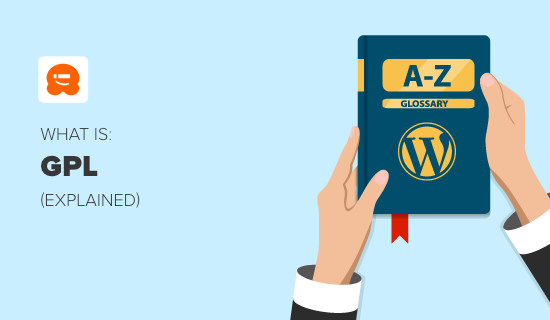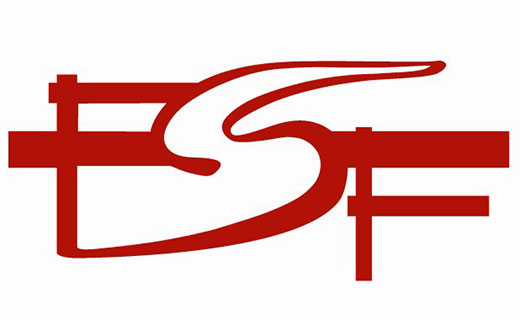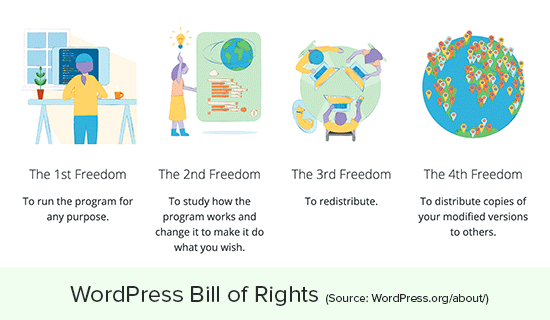The GPL is the free and open-source software license used by WordPress. This license was chosen because it supports the philosophy behind the WordPress project.
If you’ve ever installed a software application, then you’ve been asked to agree to an end-user license. That long and complex document is normally there to protect the rights of the software company. The GPL is different.
Unlike many other software licenses, the GPL isn’t trying to restrict what you can do with WordPress. It’s there to ensure you can use it freely.

The GPL was written by Richard Stallman in 1989 for his own GNU operating system and is currently administered by the Free Software Foundation (FSF).
It was written out of a deep concern for the way software licenses were becoming more restrictive. Stallman wanted to protect the freedom of software users and let them help their neighbors by sharing software freely.

So he wrote the GNU General Public License to guarantee users four freedoms:
- The freedom to run the software for any purpose.
- The freedom to study the source code and change the software for any purpose.
- The freedom to share the software with others.
- The freedom to share your own modified versions of the software with others.
If you’d like to read the complete license, then you’ll find it on the GNU website.
Software that is released with a GPL license is known as free software or open-source software. Here, the word ‘free’ is referring to the four freedoms, not the price of the software.
For more information, see What is Free Software?
Vídeo explicativo
Si prefiere una explicación escrita, siga leyendo.
What Does the GPL Mean for WordPress?
WordPress chose the GPL license because it aimed to create a welcoming and inclusive community. In fact, the GPL can be thought of as the WordPress ‘Bill of Rights’. It provides the core basic values that the project believes in.

The license gives anyone the freedom to download, copy, use, study, and modify the WordPress code. This philosophy encourages a spirit of openness and sharing.
And it’s working. WordPress is an open-source community project where tens of thousands of talented people have made contributions to make it into the great software that it is today.
There is a core team of developers who lead the project development, but anyone who values WordPress can contribute to its success. Developers can contribute patches and fix bugs, and users can suggest new features.
Apart from those contributors, there are many companies, individuals, and freelancers who sell WordPress related products and services around the world.
To learn more, see our article explaining why WordPress is free.
The GPL and WordPress Themes and Plugins?
The GPL allows anyone not only to study the source code of WordPress but also to modify and extend it to meet their needs. The only restriction is that if you share a modified version of GPL software, then it must also have a GPL license.
This is called ‘copyleft’, a play on the word ‘copyright’. It makes sure that free software remains free by using copyright law to require the same freedoms are offered by all modified versions.
For this reason any work based on WordPress inherits the GPL license. That includes ‘derivative works’ such as WordPress themes and plugins. ‘Copyleft’ means that they must also be released under a GPL license.
That means any WordPress theme or plugin that you download from the official WordPress.org directory is GPL software, and even most commercial WordPress themes are released under the same license.
We hope this article helped you learn more about what the GPL means for WordPress. You may also want to see our Additional Reading list below for related articles on useful WordPress tips, tricks, and ideas.
If you liked this guide, then please consider subscribing to our YouTube Channel for WordPress video tutorials. You can also find us on Twitter and Facebook.
Additional Reading
- ¿Quién es el propietario de WordPress y cómo gana dinero WordPress?
- ¿Por qué WordPress es gratuito? ¿Cuáles son los costes? ¿Cuál es el truco?
- 25 datos interesantes acerca de WordPress (Infografía)
- Fuente abierta
- 4 reglas “que hay que saber” acerca del logotipo y la marca de WordPress (explicadas)
- Software libre



